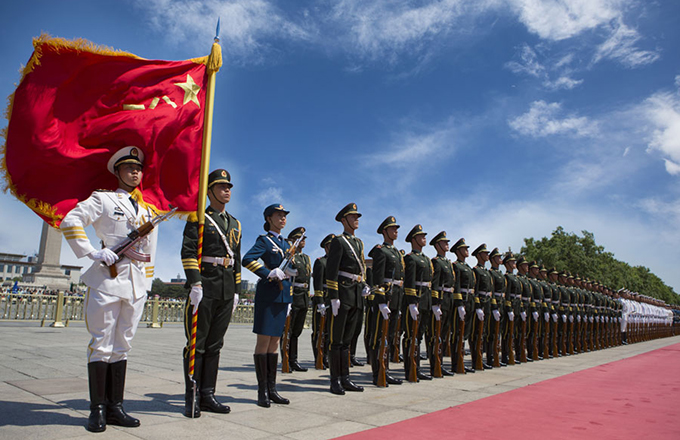By politicizing trade ties US would harm itself
 |
|
A worker looks closely as containers are unloaded in Qingdao Port, Shandong province. [Photo/China Daily] |
Reports that US President Donald Trump is considering imposing restrictions on Chinese imports, with an announcement forthcoming as early as this week, are worrying, because the move, if taken, could spark a trade war between the world's two largest economies.
The United States' grievances stem from its huge trade deficit with China, which now stands at $368 billion, and what it regards as China's weak protection of intellectual property rights. Section 301 of the US' Trade Act of 1974 allows Trump to impose tariffs or other trade restrictions to protect US industries from "unfair practices" without following the dispute settlement mechanism of the World Trade Organization.
That Washington is backpedaling on the joint efforts the two countries have made to narrow their differences on trade will be a blow to the mutual trust that both sides have worked hard to build. It could also compromise the one-year action plan on economic cooperation they agreed at the Comprehensive Economic Dialogue in Washington on July 19. The plan for a year of discussions is aimed at building on the positive momentum achieved in the 100-Day Action Plan trade negotiations between the two sides initiated after the summit meeting in April between Trump and President Xi Jinping.
The timing of the proposed move has sparked speculation that Trump is trying to punish China for what he sees as Beijing's failure to help him rein in the Democratic People's Republic of Korea's nuclear weapons program. But that assumption is unfounded, and politicizing the trade issue in this way risks harming Sino-US relations.
Beijing always insists that trade disputes and frictions, which are inevitable given the size of the two economies, should be resolved through dialogue and consultations. And this is imperative given how complementary and interdependent the two economies are.
If it resorts to a domestic law to address its trade disputes with China, rather than relying on dialogue or the dispute-settlement mechanism of the WTO, the US would belie its claim that it wants to build "fair, equitable and reciprocal" trade relations with China. And imposing tariffs and restrictions on Chinese imports would serve the interests of neither side, since China will have no choice but to take retaliatory measures, thus paving the way for a trade war. Both sides should work hard to avoid that damaging eventuality.






















